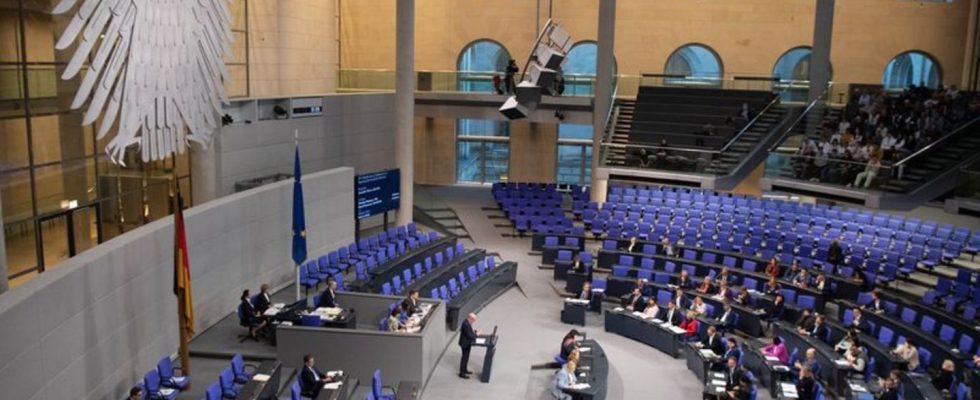migration
Union internal politicians: Border controls make sense in the long term
The controls would “bring more light into the darkness,” says Union internal politician Alexander Throm. photo
© Kilian Genius/dpa
Politicians from the Union and Faeser have argued for a long time about the usefulness of fixed border controls. They now rate the additional controls as a success.
The additional ones that have been running since mid-October From the point of view of the Union’s internal politicians, border controls make sense and should be continued for a long time. “It turns out that these are more efficient and more successful than we ourselves had hoped for,” said the Union faction’s domestic policy spokesman, Alexander Throm, to the German Press Agency.
The CDU politician had called on Federal Interior Minister Nancy Faeser (SPD) months ago to order stationary controls at additional border sections. If the controls had started earlier at the border, this could have prevented damage to Germany, said Throm.
On October 16, Faeser instructed the federal police to carry out stationary checks on the border with Poland, the Czech Republic and Switzerland, as has been the case on the land border with Austria since 2015. The minister had initially notified the EU Commission of fixed border controls on these sections for ten days and then extended them twice by 20 days each. She justified this step with the fight against irregular immigration and smuggling crime.
Controls bring “more light into the darkness”
According to preliminary figures, the Federal Police detected a total of more than 11,000 unauthorized entries and arrested 266 smugglers in the first month since controls began at the German borders. In addition, according to its own information, it was able to identify 3,528 people who were wanted and execute 670 open arrest warrants.
The controls “bring more light into the darkness” and ensure that irregular migration to Germany is limited or slowed down, said Throm. When asked whether the differences of opinion on asylum policy, which sometimes existed during the time of Chancellor Angela Merkel (CDU), no longer existed today, he replied: “I see a great deal of unity in our group.”
This also has to do with the fact that parliamentary group leader Friedrich Merz (CDU) initiated a broad discussion in the spring, at the end of which a migration policy position paper was adopted under the heading “Humanity and Order”. “On this basis, our group works well together,” emphasized Throm.

